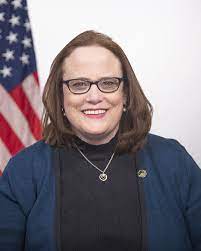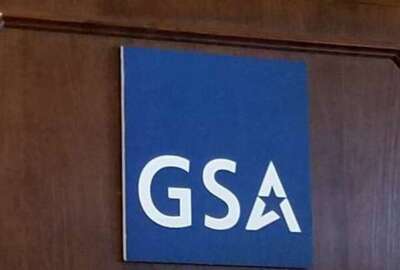Key IT acquisition, financial executives leaving GSA, HHS
Michael Peckham, the former CFO of the Program Support Office at HHS, is one of several executives retiring after more than 30 years in government.
The General Services Administration is experiencing the federal version of the “great resignation” first hand.
Over the last month, three long-time GSA executives decided to retire or leave federal service. And just in the last week, GSA CFO Gerard Badorrek decided to return to industry after seven years at the agency.
Badorrek confirmed his last day is Jan. 21.
Along with Badorrek, John Sullivan, GSA’s senior technology advisor to the deputy associate administrator in the Office of Governmentwide Policy, retired after 34 years, including the last 12-plus at GSA.
Cheryl Ward, GSA’s innovation program executive in the office of IT, which includes the agency’s chief information officer’s office, also decided to call it a career after more than 43 years in government.
And finally, Judith Zawatsky, GSA’s assistant commissioner in GSA’s Office of Systems Management, is moving to a new position with Gartner after more than 15 years with the agency.
While it’s a lot of experience and knowledge heading out the door, none of these should be surprising.
Badorrek joined GSA in 2015 after spending his entire career with the private sector, including working for MCI, Hi-G-Tek and Xerox.

During his tenure, Badorrek has led the GSA and a governmentwide effort to implement robotics process automation (RPA) and move agency financial workers away from repetitive and “low value” work.
GSA’s CFO organization now uses RPA across at least nine different functions at GSA.
One example is how GSA uses automation for the leasing management process across its 11 geographic regions. Another example is the approval process for credit card purchases to pull transaction data without manual input.
Badorrek also helped establish and lead the RPA community of interest across the government where since April 2020 the COI has led 28 webinars, which were seen by more than 7,000 employees.
“This team expanded from optimizing CFO operations to delivering value for the rest of GSA and the federal government. No matter how ambitious or aggressive the goals I set, the OCFO team continued to exceed expectations – whether it be significant improvements on the financial audit, our first RPA application in 100 days, or a total reorganization of all GSA financial services. GSA OCFO deserves its status as the top rated federal finance organization according to the Partnership for Public Service best places to work report,” Badorrek wrote on LinkedIn. “It is always good to leave on a high note – I also want to share the 2021 Federal RPA COP’s State of RPA Report, an analysis of governmentwide deployment and impact. This year’s report expands to 49 agencies who have put over 1,000 automations in place. Each program’s lessons learned and successes inform the entire federal community on how they can successfully leverage this transformative technology.”
Like Badorrek, Zawatsky’s move back to industry comes after a successful run in government.
Zawatsky inherited one of the biggest challenges, and really messes, to modernize federal acquisition databases/systems under the Integrated Acquisition Environment initiative.
She led the launch of the beta.sam.gov portal replacing the old FedBizOpps.gov platform in November 2019 and has been leading an effort to continually improve the site, which is now called SAM.gov.
While the portal is far from perfect, it’s clear Zawatsky has been trying to take user feedback to make improvements.

And maybe more importantly, IAE, which began during the administration of President George W. Bush under the e-government initiatives, struggled for more than a decade, has been on track and making real progress over the past three years with Zawatsky at the helm.
Zawatsky started at Gartner on Jan. 10, where she will be working with federal executives on sourcing and vendor management as an enterprise IT leadership partner.
For the other GSA executives who are leaving, Sullivan and Ward, it brings to an end a long-time, successful federal career.
Sullivan, who also worked for the Environmental Protection Agency for 19 years before a short stint at the Office of Management and Budget’s enterprise architecture office, came to GSA in 2010 and worked in a variety of positions in the Office of Governmentwide Policy around technology.
“It’s been a joy to work with all of the people I’ve met – my home agencies, our federal, state, local, and international government agencies, as well as many IT industry associations. I was privileged to travel around the country for EPA and was always treated as a guest by our governmental and industry colleagues. I will always appreciate that,” Sullivan wrote on LinkedIn. “I’ve especially enjoyed working in the enterprise architecture world, national and international data sharing programs, digital strategies, and for the past eight years, working with the digital accessibility community.”
He said he may “reincarnate” himself in some new role relevant to continue to contribute in a different capacity.
Ward spent a majority of her career with GSA, serving in positions ranging from chief of staff for the old Federal Technology Service to working in the Office of the Chief People Officer to working in the CIO’s office.
Over the last six years, Ward has been focused on coaching federal employees around areas like planning, decision-making, relationship issues and work-life balance. She wrote on LinkedIn that her goal was to help GSA and other federal employees identify and better control their career roadmap.
Small business advocate passes away
Kevin Boshears, who worked as a small business advocate at the Treasury and Homeland Security departments for more than 30 years, passed away on Dec. 22.
Boshears, 62, worked for the federal government for 35 years, including serving as the Department of Homeland Security’s director of the Office of Small Disadvantaged Business Utilization from 2003 until he retired in 2018. He also served as the Treasury Department’s small business director before going to DHS.
Boshears is survived by his wife of 32 years, Elizabeth, and their three kids and two grandkids. The Boshears ask for donations to be made to the American Cancer Society in Kevin’s memory.
HHS financial leader retires
Michael Peckham, who spent 34 years in federal services, including the last eight years leading financial management efforts in the Department of Health and Human Services, retired in early January.
“I worked in government accounting/financial management for most of my career. Over the last few years I was fortunate to be involved in several large scale transformative initiatives promoting process improvement, innovation, and culture change,” Peckham wrote on LinkedIn. “These roles tested me, forced me to learn, allowed me to grow, and their outcomes will make a difference. I have often been asked why I would want to take on these types of challenges so late in my career, and the answer is simple. When you spend a lifetime thinking ‘there has to be a better way to do this’ and then you get the opportunity to not only influence, but lead positive change – how can anyone possibly say no. After all, isn’t that what federal service should be all about!”
Peckham spent five years leading the ReInvent Grants Management transformation initiative under the HHS ReImagine program. He also led the HHS DATA Act implementation effort as well as the grants pilot required under the statute.
Over the last two-plus years, Peckham was the CFO of the HHS Program Support Center, where he inherited a mess after leadership decided stop offering governmentwide acquisition services.
Peckham said in November on the IBM Center for the Business of Government Hour on Federal News Network that he was most focused on rebuilding the PSC workforce, ensuring the organization took full advantage of new and emerging technology to replace aging or monolithic systems and the future of the workplace of tomorrow given the impact of the pandemic.
Copyright © 2025 Federal News Network. All rights reserved. This website is not intended for users located within the European Economic Area.
Jason Miller is executive editor of Federal News Network and directs news coverage on the people, policy and programs of the federal government.
Follow @jmillerWFED






